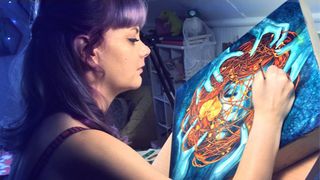AI art is having an impact and it's not all positive. Kelly McKernan is a successful fantasy artist with clients that include Dark Horse Comics, Stranger Things and our sister magazine ImagineFX. She has spent ten years honing her skill, building a career and creating popular art, and it could all be over because of generative AI.
"Honestly," she says, "I feel violated". Her voice breaks slightly and there's an anxious laugh, the kind that is released when all hope is lost. The thought of losing her art career because of generative AI has left her feeling dejected.
The recent surge in AI-generated art by tools such as DALLE-2, Stable Diffusion and Midjourney has impacted many artists who's work has been used to train these models without consent. Just like D&D artist Greg Rutkowski who found his very name was a prompt, McKernan has found her art scraped into AI models.
We need to talk about AI
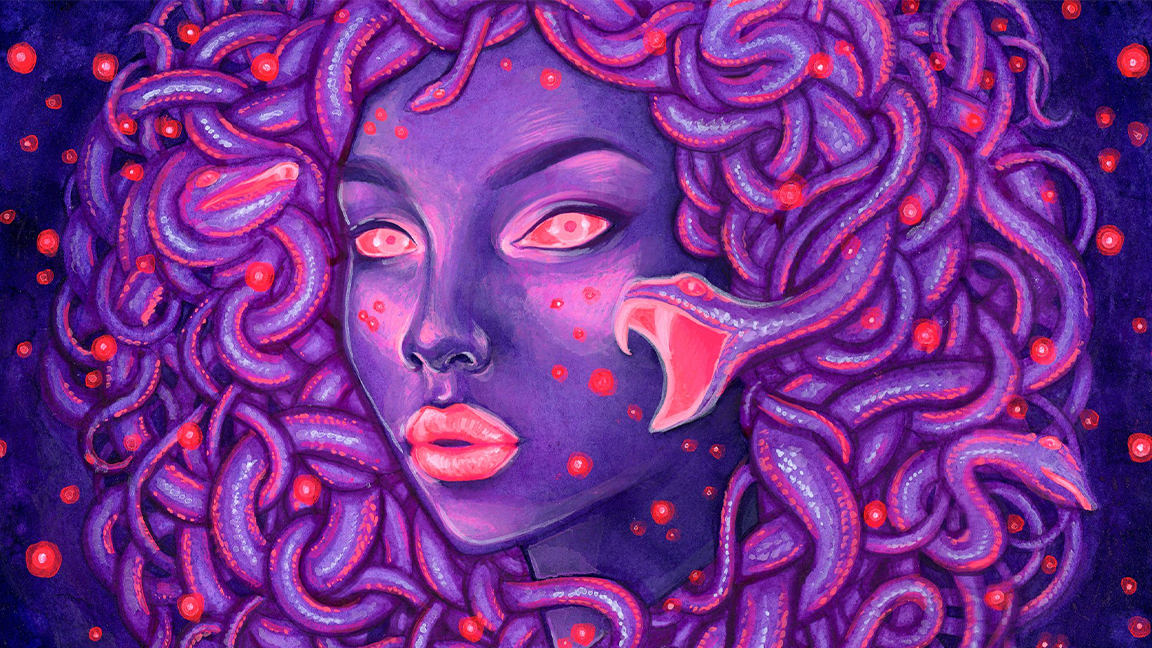
Of course, for some, AI has the potential to transform workflows and enhance creativity. However, ethical concerns continue to plague the use of generative AI to create art, and even those advocating for more AI in art, such as Adobe's plan for AI and copyrights, are aware it needs to be controlled.
When McKernan says, "I do not have any issues with AI," I'm taken aback. But for
McKernan generative AI isn't really the problem, it's how it's being used and controlled, or rather, the lack of restrain.
"AI is existing as it's supposed to exist," says McKernan. "I think it has had a lot of potential to make our lives easier, to make workflows more effective. My issue is that the implementation of it, especially with AI art, hasn't been ethical, in my opinion because of the way it is built off a massive data set with 5.1 billion images, and taxpayers' data, all of which was culled from the internet without consent."
This issue, McKernan emphasises, stems from the fact that the data set was created for nonprofit use, yet various companies have exploited it for profit. The artists, whose works have been incorporated into these AI programs, often go unpaid and uncredited. Companies like Midjourney, against which McKernan is currently involved in a lawsuit, recommended using artists' names as file names, both living and deceased, when their beta program was launched in July 2022.
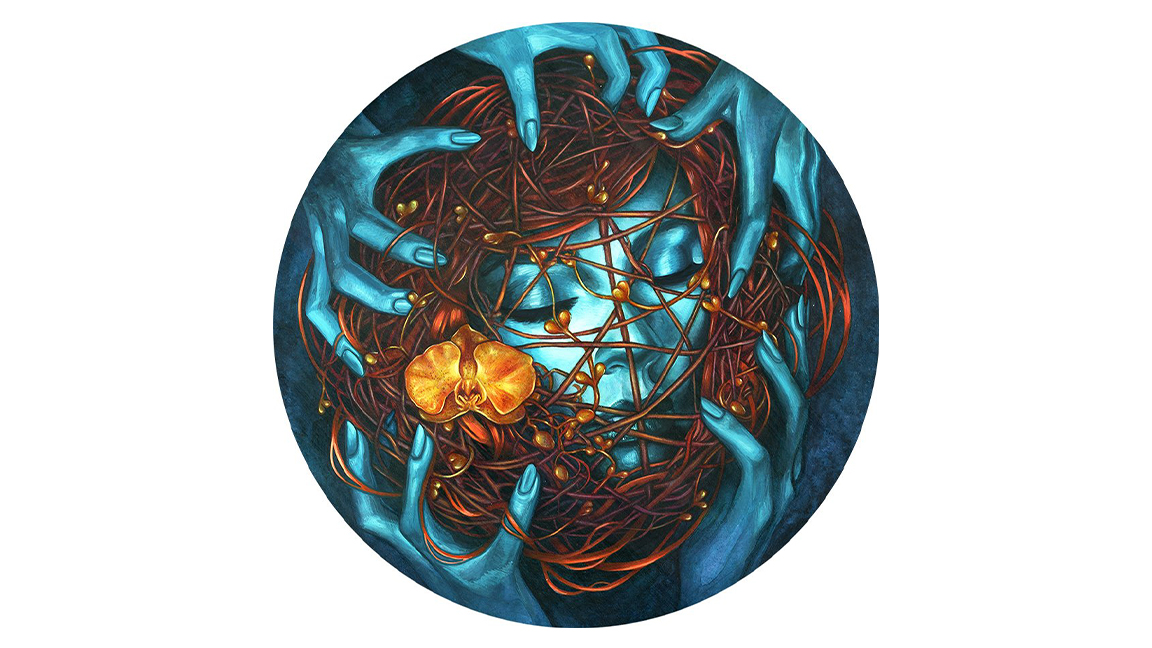
McKernan firmly believes that a more ethical approach is possible. She argues, "I think if these companies were less profit-driven and more interested in ethical long-term solutions, they could have approached this differently. They should have reached out to artists and asked for consent. The default should have been opt-in, rather than putting the onus on the artist to opt out."
The lack of transparency in AI art is a significant issue. "Many artists aren't even aware that their work is in a data set. How can they opt out when they don't even know they're in?" McKernan questions. Furthermore, the absence of proper credit can be detrimental to artists. Often, their names are not associated with AI-generated works, and sometimes metadata from these images can even overwrite the artists' search results on platforms like Google.
This obviously has economic consequences and this is causing many artists to question whether they can maintain their careers. "A small self-publishing author could decide to use AI to generate a cover with my name instead of hiring me. This is happening now, and it's a significant concern," McKernan shares.
AI is impacting artists' lives
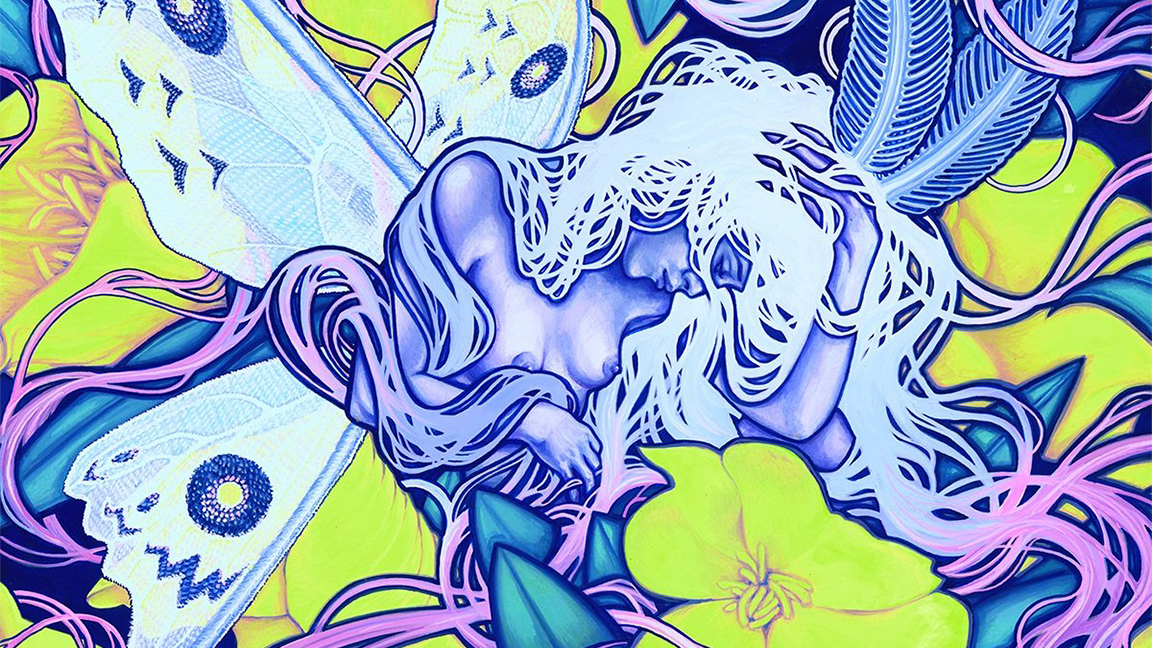
McKernan is part of an AI lawsuit aimed at addressing these ethical concerns. She believes that the rush to exploit legal loopholes is a driving force behind unethical AI practices. (Read our feature 'What can be done to stop generative AI art?' for a good idea of the issues at play.)
"A lot of these companies know they have a short window of opportunity before copyright laws catch up to them. They're aiming to make billions and build empires before facing the consequences," says McKernan, explaining there's an unspoken race to land-grab as much art as possible before governments and regulators close the loopholes.
AI art has left many artists feeling helpless and betrayed. McKernan shares her own experiences, "Before I joined the lawsuit, I was feeling extremely hopeless about the situation. I wasn't painting; I felt that there was no point. But being part of the lawsuit has given me a ton of purpose and a new perspective."
She has also returned to teaching, in part due to the impact of AI art on her income. "I saw my income drop significantly in the last year. I can't say for certain how much of that is due to AI, but I feel like at least some of it is," she acknowledges. Returning to teaching has not only been a financial necessity but also a way to pass on her knowledge to emerging artists who are grappling with the threat of AI.
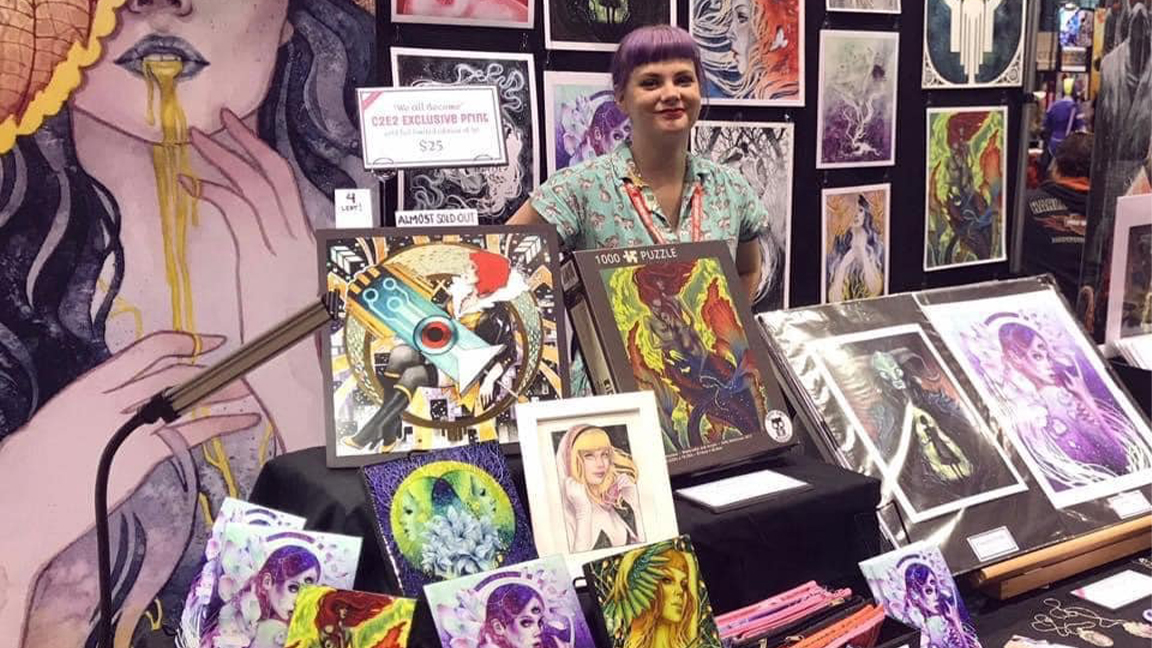
Looking ahead, McKernan believes that the AI aesthetic, characterised by a digital and polished look, will eventually drive artists back towards traditional art forms. "I think that there will be a slow shift back to low art, to traditional work," she says. The resurgence of traditional art could present new opportunities for artists who have seen their livelihoods impacted by AI-generated art.
McKernan and other artists are calling on companies to take more ethical approaches to AI art. "The fact is, I feel that there will be no other opportunity to be this loud, to have any effect of change unless we push hard right now," she emphasises. She hopes for a future where artists can licence their work and receive proper compensation and credit for their art if it's used by generative AI.
AI is not a tool, it's a plagiarism slot machine
Kelly McKernan
Of course many find creativity in using AI. When I mention those who use generative AI because it's 'just another tool' to be harnessed, like when Photoshop first appeared, she counters: "AI is not a tool, it's a plagiarism slot machine." McKernan explains there's no way to know how the prompts being used are weighted, there's no way to confirm if the images showing up are because of the user or the algorithm, or if the images can replicated. "One's a machine and one's a human, they're very different," she states.
Artists like McKernan continue to fight for their right to their creations in the face of the AI art revolution. They strive to ensure that AI does not compromise the livelihood and creativity of artists, and that the future of art remains in the hands of those who create it, rather than those who exploit it for profit.
Finally, she tells me, "it could take five to ten years" for AI to be regulated properly, "but I don't think I can wait that long", she says, resigned to the fact she may need to give up on a career she's worked hard for, is good at and loves.
But she is still painting and creating art, so why not pay a visit Kelly McKernan's website to discover her latest work, read her blog and purchase her latest art?
